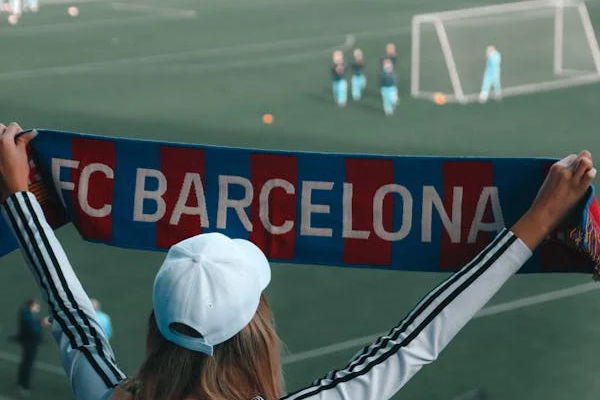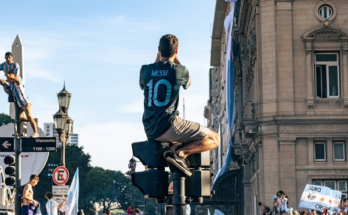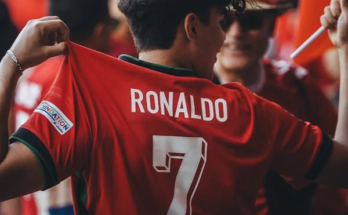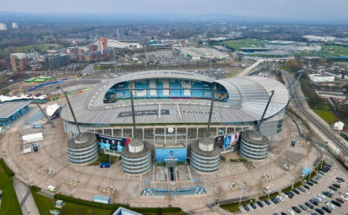Barcelona
Football Club Barcelona, otherwise known as Barcelona or simply Barça, is probably one of the most important football clubs in the entire world. Based in the city of Barcelona in Catalonia, the club is known for its long-standing history, attacking style of play, and a huge enough fan base around the world. With “Més que un club” (“More than a club”) as its motto, FC Barcelona is much more than football; it stands for Catalonian pride, culture, and identity.
Founding and Early Years
It began on November 29, 1899 when FC Barcelona was founded by a group of Swiss, English, and Catalan football players, the most important being Joan Gamper. The initial years of the club were marked by little local success and the formation of a growing reputation as a football team. By the time of the 1920s, Barcelona had already earned its place in Catalonia, as it achieved several regional championships.
The commitment of the club with the Catalan roots was starkly evident during the times of Spanish civil war and Franco’s dictatorship, for it was the emblem of struggle against repression. Barcelona did not dwindle in growth, though it faced so many adversities in that era, on the grounds of pitch and off – it was a mammoth growing entity.
Domestically Successful
The success catalogue of Barcelona is arguably one of the longest anywhere in history, as far as axes of success in Spanish football are concerned. Barcelona has lifted La Liga a total of 27 times-the most by any club except Real Madrid. In fact, Barcelona has perhaps dominated their domestic league particularly at this time of the 21st century, as one of the greatest number of titles under Pep Guardiola, Luis Enrique, and Ernesto Valverde.
And of course, Barcelona’s league success is complemented by such knockout competitions as the club was able to win the Copa del Rey for record 31 times. Also, as if that were not enough, their trophy cabinet has 14 Supercopa de España titles to rub it in the face of the rest in Spain.
Providing International and European Glory
Beyond the boundaries of Spain, this is a club in which it has won the UEFA Champions League five times, and its first win was under the management of Johan Cruyff in 1992. Through the years, Barcelona has dominated European football in the modern era , winning in 2006, 2009, 2011 and 2015, its two triumphs in 2009 and 2011 being under Pep Guardiola , ironically regarded by many as the peaks of modern football because of the dizzying style of play they put on display.
Barcelona crowned its international success with three FIFA Club World Cup wins and many titles of UEFA Super Cup: the club has rightly earned the reputation of being one of the most winning and most followed clubs worldwide.
Iconic Players
Through the years, Barcelona has accommodated some of the greatest players in football history. Johan Cruyff left an indelible mark on the club, both as a player and manager, and with a philosophy that focused on attacking football and technical excellence.
No player shall be associated with FC Barcelona as much as Messi will, perhaps the greatest player in history. The Argentine left with a record number of individual awards, including seven Ballon d’Ors, during his time at the club: 2004-2021. Messi is also the all-time top scorer for the club, netting up 672 times in official competitions.
Other important players who shared the limelight include Ronaldinho, Xavi, Andrés Iniesta, Carles Puyol, and Samuel Eto’o, who were instrumental during the club and had their most flourishing periods. Emerging talent like Pedri and Gavi are the brightest future assets of the club, assuring the continuity of the footballing traditions.
The Camp Nou
One of the most recognizable football stadiums worldwide is the Camp Nou, home to Barcelona. This football stadium was opened in the year 1957, has a capacity of more than 99,000, and is meant to serve as the home stadium for the club la construite a stadium in Europe. FC Barcelona boasts a facility beyond the football field; millions revel in their culture and history, and visit annually as one of the spots listed on their “things to do when in Europe.” The remodeling and modernization of the stadium are part of making it a world-class venue within the purpose of the Espai Barça project.
Rivalries
That rivalry is the one between Barcelona and Real Madrid. It is one hung on the phrase “El Clásico” and is most perhaps one of the red-hot rivalries in sports; as games between these two titans often bear overtones of politics and history, they mirror the deeper tensions between Catalonia and the rest of Spain. El Clásico is a world phenomenon; millions of viewers tune in from all across the planet.
There is a special rivalry with Espanyol, the other big side in the city, called the “Derbi Barceloní.” These fixtures are of great contention, but they do not boast the same worldwide following as El Clásico.
Barcelona of Philosophy and Identity
The football philosophy in Barcelona is an attacking one characterized by technical and youth development. La Masia, Barcelona’s academy of excellence, is famous for producing world-class talents including Messi, Xavi, Iniesta, and Gerard Piqué. That more than anything has made the light of sun known by which Barcelona has shone brightly among the big clubs.
Barcelona is a cultural institution because of that motto, “Més que un club.” The club, one way or another, has stood for political and social issues, so it has had many identities like that with the aspirations of Catalonia for further autonomy or independence from Spain. These issues have made an emotional linkage with the fans; for them, Barça is not just a football team.
Economic and Global Reach
Barcelona one of the hugely successful sports clubs internationally as well as the most commercially viable, notwithstanding its most recent bout of financial challenges. However, it remains significantly lucrative as a commercial entity because its revenues mainly come from sponsorships, merchandising, and broadcasting rights. Furthermore, its global fan base can be counted in hundreds of millions, thus extending its influence far beyond the boundaries of Spain.
Maybe more such partnerships with global brands, use of pre-season tours, and digital space into which the Club has opened doors have augmented its global reach. More so, Barcelona’s spread on social media is also one of the largest in the sports world.
Challenges and Future Horizons
In recent years Barcelona has had financial struggles, which although have been complicated by COVID-19, were not alleviated at all by any previous administrative mismanagement. The departure of Lionel Messi in 2021 was the final event in an era of glamour and glory, making the organization realize its need for financial stability and strategic planning.
Barcelona, however, is back on course to revamp the team with an intention of having it at its competitive best again. Through the actions of President Joan Laporta and manager Xavi Hernández, the club would mostly focus on youth development, sustainable expenditure, and reclaiming its status as one of the top teams across Europe.



